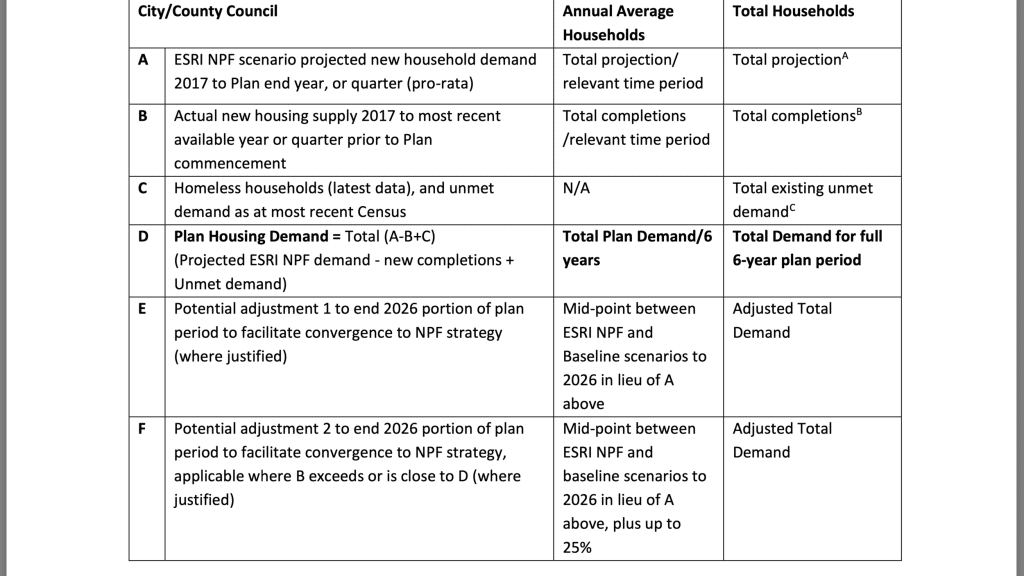Housing Need and Demand Assessment (HNDA)
Earlier this week the Department of Housing, Local Government and Heritage updated its Housing Supply Target Methodology for Development Planning, namely, the methodology behind the Housing Need and Demand Assessment, or HNDA, that must be undertaken by each local authority in the Republic of Ireland, in line with National Policy Objective 37 of the National Planning Framework (NPF). Further details of this can be found in the Guidelines for Planning Authorities issued under Section 28 of the Planning and Development Act, 2000 (as amended) December 2020.
That is an exceptionally bureaucratic way to say that Ireland is now taking a more empirical or evidenced-based approach to planning and development in order to ensure that the long-term strategic housing needs of the nation are met. This data-based approach to future planning is broadly welcomed by the development community, of course it will be interesting to see if any challenges to the methodology emerge around the country.
The purpose of the HNDA is to inform local authorities as to local needs in order to assist them with the development of long-term housing strategies, across all housing types and tenures. The research is intended to provide a “robust evidence base” to support decisions about new housing supply, housing related services and indeed wider investment. As pointed out in the guidelines, one of the key responsibilities of a local authority is planning for the infrastructure, employment and services needed to sustainably support citizens and local communities in the future. It is critical that such a “comprehensive and coordinated approach” is taken to estimate the scale and nature of what those future needs will be in order to effectively plan for appropriate future development. Significantly, the HNDA will inform policies about the proportion of public and private housing required in each area, whether for private ownership, private rental, social and/or affordable housing. These HNDAs are required by each local authority to support the preparation of city and county development plans and local area plans, which will in turn inform policies around land use and funding initiatives.
Given that the NPF is based on demographic and econometric projections undertaken by the Economic and Social Research Institute (ESRI) back in 2017, this ongoing empirical, standardised approach is essential for the operation of a consistent and successful planning policy, which in turn is essential to ensure that Ireland continues to be seen as an attractive and stable development and investment environment.
As mentioned above, further details of the methodology of the HNDAs – pictured below – can be found in the Guidelines for Planning Authorities issued under Section 28 of the Planning and Development Act, 2000 (as amended) December 2020.

With offices in Dublin and Cork, Castlehaven Finance has provided development finance for both private and social housing to developers, builders and project owners across Ireland in excess of €1.7 billion (200+ loans) since 2014. Speak to the Castlehaven Finance team about your next commercial or residential development project https://www.castlehavenfinance.com/contact
